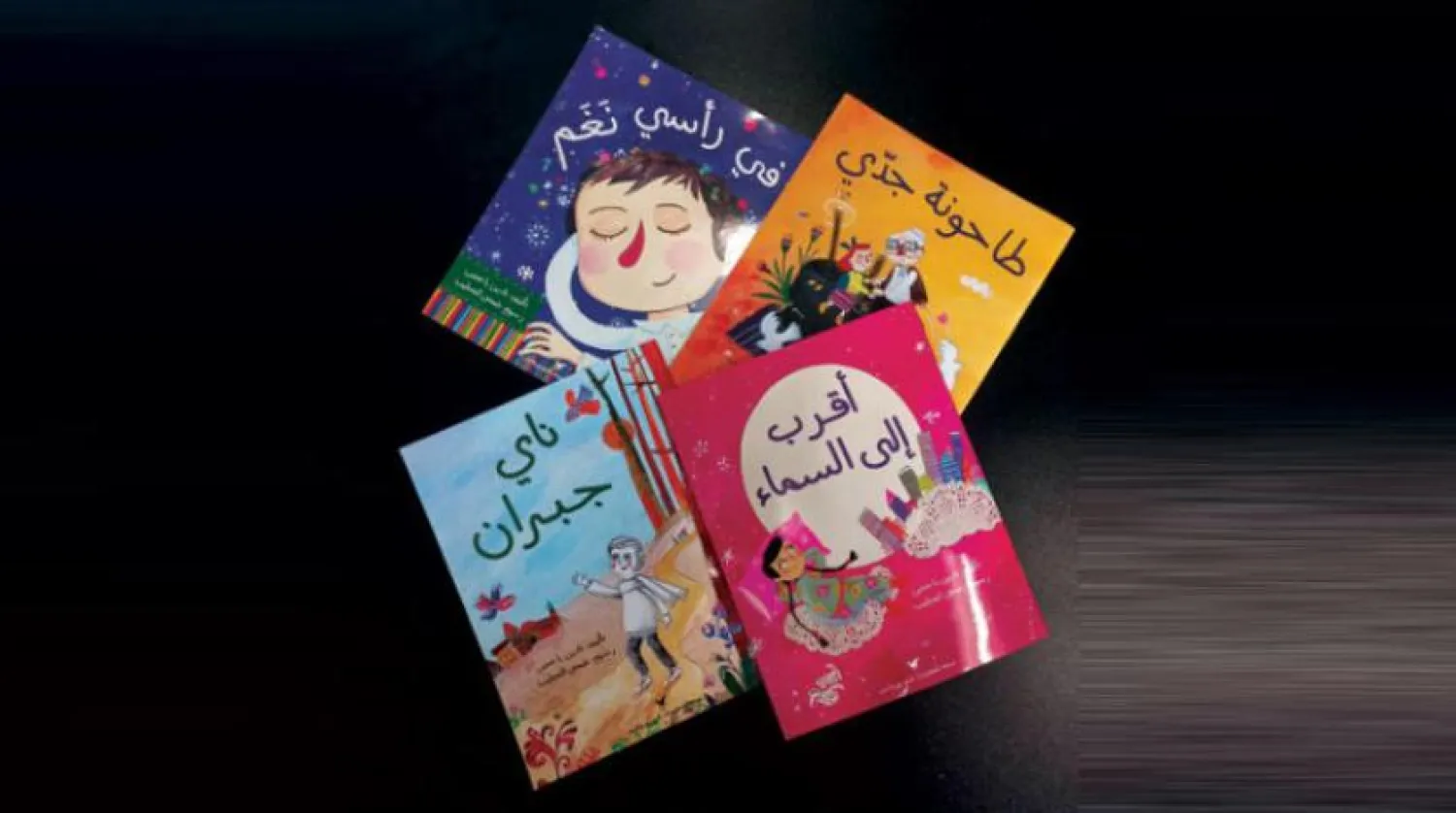All Prints Distributors & Publishers, Beirut, released a new series of children books by Author Nadine Bakhos, and Artist Doha al-Khatib. The series is composed of four books: ‘Melodies in My Head’, ‘The Mill of My Grandfather’, ‘Gibran’s Flute’, and ‘Closer to the Sky’.
The publisher said behind these four books are a mother and her daughter who were sitting one night playing and drawing, while listening to the songs of Fairouz, including the child’s favorite ‘Kan Ena Tahoun’ (we once had a mill) that always made her feel like she’s living in the neighborhood mentioned in the song, and ‘her grandfather was grinding wheat and joyful evenings.’
In the books, the mother tells her little girl how her father died when she (the mother) was 11 years old, and how he left tons of stories that she always recalls, despite he didn’t have a mill. ‘The Mill of my grandfather’ was inspired by Fairouz songs, stories of grandparents, and the sadness that follows their loss.
‘Closer to the Sky’ was written for every mother obsessed with distancing her children from ubiquitous screens.
The story of this book revolves around the author living with her family on the 30th floor, using it as an opportunity to give her daughter new entertaining ideas like watching cars looking so small from above, and clouds of various forms, counting airplanes, and searching for the stars. The child in the story really enjoyed this experience, which helped her forget the TV and iPad, and gave her the chance to relax her eyes.
‘Melodies in my Head’ focuses on insomnia among creative kids. In the story, Nadine Bakhos admits she suffered from insomnia during her childhood, and spent long nights mentally occupied with myriads of ideas and dreams like many other children. When she got older and heard about the creativity of Ziad Rahbani, his childhood, and how he was unable to sleep because of the mental music that surrounded him, she felt motivated to open up about the creativity insomnia accompanying many children.
“I wanted to tell them that someone here knows what they are experiencing, someone who doesn’t tell them they have to sleep well so they can grow well,” the author said.
The ‘Gibran’s Flute’ book is an introduction to the world of Gibran Khalil Gibran, the child and the creative human, according to the writer. It’s a first step that I hope will grow and enrich the little ones’ minds.
This book was based on Bakhos’ experience with Gibran Khalil Gibran’s books she found in her family’s library, and on her journey as a writer and a mother.









